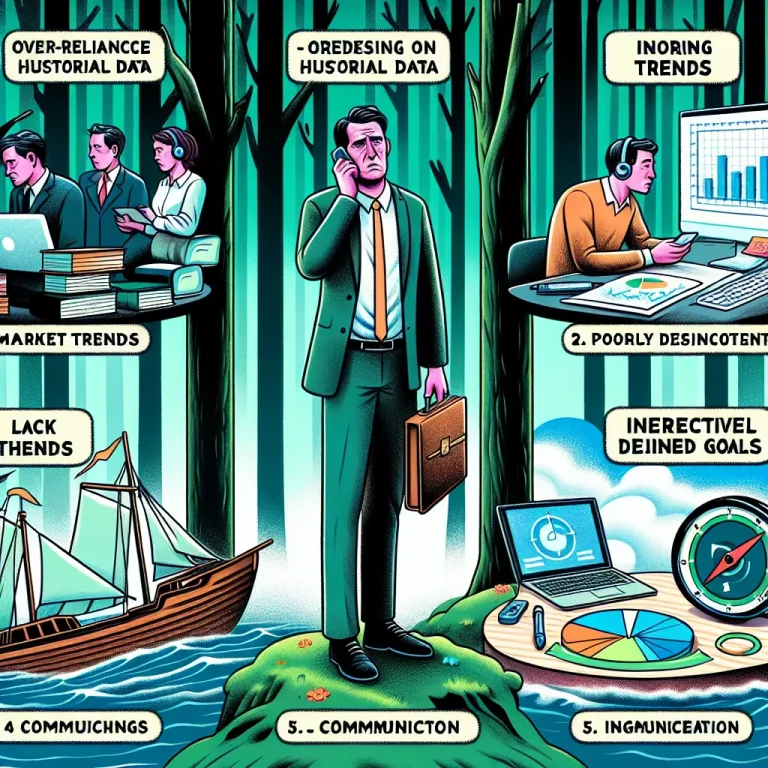Unlock the Future: 5 Shocking Business Forecasting Mistakes You're Making – and How to Turn Them Into Profitable Opportunities!
Title: Unlock the Future: 5 Shocking Business Forecasting Mistakes You’re Making – and How to Turn Them Into Profitable Opportunities!
In the fast-paced world of business, accurate forecasting is crucial for success. However, many businesses make common mistakes that can hinder their growth and profitability. In this article, we will explore five shocking business forecasting mistakes you may be making and provide actionable strategies to turn them into profitable opportunities.
1. Neglecting Data Analysis: The Foundation of Effective Forecasting
Data analysis forms the foundation of effective forecasting. Many businesses make the mistake of neglecting this crucial step, leading to inaccurate predictions and missed opportunities. By leveraging advanced analytics tools and techniques, businesses can uncover valuable insights from their data and make informed decisions that drive growth.
2. Overlooking Market Trends: A Recipe for Missed Opportunities
Ignoring market trends is a common mistake that can have detrimental effects on your business forecasting. By staying up-to-date with industry trends, consumer behavior, and competitive landscape, businesses can anticipate changes and adapt their strategies accordingly. Embracing market trends opens up new opportunities for innovation and growth.
3. Relying Solely on Historical Data: A Limitation in Forecasting Accuracy
While historical data provides valuable insights into past performance, relying solely on this data can limit the accuracy of your forecasts. Businesses need to incorporate other factors such as market dynamics, emerging technologies, and consumer preferences to create more robust forecasts. By taking a holistic approach to forecasting, businesses can better prepare for future challenges and opportunities.
4. Ignoring External Factors: The Blind Spot in Forecasting
External factors such as economic conditions, regulatory changes, and geopolitical events can significantly impact business performance. Ignoring these factors in your forecasting process can lead to missed opportunities and unexpected risks. By conducting scenario analysis and considering external variables, businesses can develop more resilient forecasting models that account for a range of possibilities.
5. Failing to Adjust Forecasting Models: Adapting to Change is Key
Business environments are constantly evolving, and forecasting models need to adapt accordingly. Failing to adjust forecasting models in response to changing conditions can result in outdated predictions and missed opportunities. By regularly reviewing and refining forecasting models, businesses can stay agile and responsive to market dynamics, positioning themselves for long-term success.
Conclusion:
Effective business forecasting is essential for navigating the complexities of today’s competitive landscape. By avoiding common mistakes such as neglecting data analysis, overlooking market trends, relying solely on historical data, ignoring external factors, and failing to adjust forecasting models, businesses can unlock new opportunities for growth and profitability. By implementing the strategies outlined in this article, businesses can turn these mistakes into valuable learning experiences and pave the way for a successful future.






